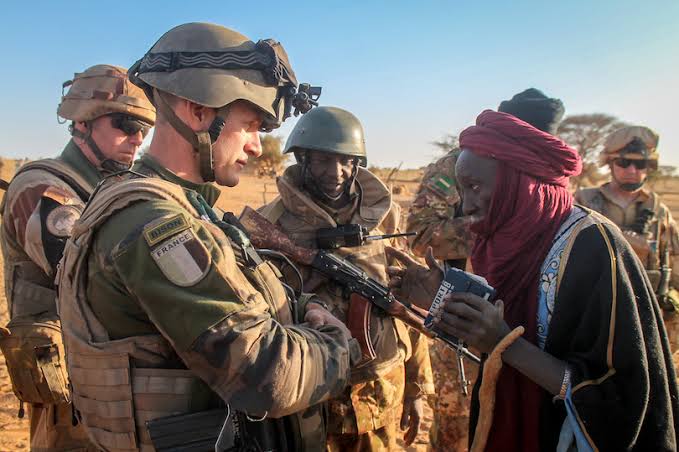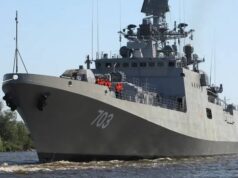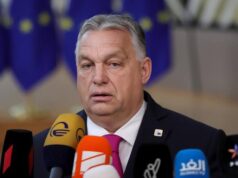French Foreign Policy for West Africa

Algeria has just recalled its Ambassador from Paris in response to France’s support of the Moroccan autonomy plan for the disputed Western Sahara region. Moreover, amid the escalation of tensions, Algeria has started to block deportations of its citizens from the European country, by refusing to take back those given deportation orders by the French authorities. Such a new migration spat could be just the beginning. Paris in fact also risks facing gas export sanctions from the North African country.
On July 30, Macron sent a note to Moroccan King Mohammed VI, supporting his majesty’s claims over Western Sahara. This development, albeit subtle, has been described as a pivotal strategic move by some analysts, marking a shift in French foreign policy for West Africa. As we know, the European power’s influence in that continent has been declining, as seen in the disasters (from a France’s perspective) in Niger, Mali, and Chad.
The Moroccan authorities in Rabat today control most of that region, largely populated by the Sawari people (an ethnic group composed of several mixed tribes of Arab, Berber, and Black African elements), while the Algeria-backed Polisario Front and its guerrilla control the border region. The self-proclaimed Sahrawi Arab Democratic Republic (SADR), founded by the aforementioned Front, remains a full member of the African Union, and the United Nations maintains that the Polisario Front is a legitimate representative of the Sahrawi people. On the other hand, Morocco’s claims to Western Sahara have been supported by both the Arab League and the Arab Maghreb Union.
One may recall that former US President Donald Trump’s 2020 recognition of the Moroccan claims was a kind of “quid pro quo” after the Moroccan authorities in Rabat normalized its relations with the state of Israel. The Western Sahara question was a divisive issue back then and remains so (just as the normalization deals with Israel were and are) and at the time I wrote that the American move could enhance pre-existent tensions beyond the Maghreb region, affecting the geopolitics of Africa. Such has been precisely the case. According to Joseph Huddleston (associate professor in the School of Diplomacy and International Relations at Seton Hall University), “through its involvement in the Western Sahara-Morocco case, the United States has undermined international norms once again. US policy towards MINURSO (The United Nations Mission for the Referendum in Western Sahara) has damaged UN functions. In 2020, the United States undermined the UN’s position by recognizing Moroccan sovereignty over Western Sahara.”
The situation in the disputed region has persistently kept the contours of a frozen conflict amid a five-decade proxy war between Rabat and Algiers. The pressing issue today could be summarized thus: why is French President Emmanuel Macron following Trump’s steps?
Macron has been clearly trying to “show strength”, as exemplified by his rather sudden new “tougher” and hawkish stance on Russia. This has to do with displaying greater autonomy from Washington, albeit always within NATO’s frameworks, and with “flexing muscle” in preparation for a new Trump presidency scenario. The French leader has been thus pushing daring shifts in foreign policy but faces plenty of domestic challenges amid a political crisis that may not have come to an end yet.
According to Salih Kaya (an editor at TRT Haber, and a Ph.D. candidate at Galatasaray University), since the 2011 Libyan war Morocco has become increasingly critical in such a way that “West African countries are obliged to pass through the infrastructure Morocco offers”, thereby replacing the role of a gateway country that Libya once had (before NATO destroyed it). It also has “invested heavily in its soft power in sub-Saharan Africa for many years”, as Kaya describes it. Unlike most of its neighbors, Rabat adopts a Westernist or Western-oriented approach and discourse, and Paris has thus “seen a window of opportunity for its national interest” there, says Kaya. For Macron, supporting Rabat’s territorial claims on the issue of Western Sahara is a kind of bargaining chip that is part of a potentially larger partnership. According to Kaya, in doing so, “France can regain influence through Morocco’s soft power, while Morocco gains legitimacy for its claims over Western Sahara.”
That is a lot at stake, both from European and North African perspectives. Algeria itself has become the EU’s third largest gas supplier since the Russian-Ukrainian conflict started in 2022, and France has been seeking to increase its own supply of Algerian gas. Gas is of course tremendously important for post-Nord Stream Europe, being used for household heating (over 30% of the EU households depend on it), power generation, and industrial processes. In the context of Western support for Ukraine, the European bloc has been trying to replace Russian gas, but it still remains very much dependent on it.
One may recall that Moscow used to provide about 40% of Europe’s natural gas, as recently as 2022, before Nord Stream was blown up in a terrorist attack carried out (according to Pulitzer Prize-winning journalist Seymour Hersh) by the United States. In this context, Algiers aspires to become a key energy provider to Western Europe, however, as I wrote in January 2023, its tensions with neighboring Morocco are a problem, with the specter of a war always haunting the region. It therefore remains unrealistic, for a number of reasons, to expect any robust energy supply from North Africa pipelines to the EU – the latter still facing economic, energy and industry problems.
The ongoing crisis today in the Red Sea involving the Houthi rebels as well as the humanitarian catastrophe in Gaza (which impacts the whole Middle East) are direct results of questionable American policies, as I’ve argued. Even today, US-brokered Moroccan-Israeli military ties fuel tensions with Algeria and other states. A new crisis is now unfolding in North Africa and this one once again has Washington’s fingerprints all over it.
Now France is also potentially contributing to further destabilize the region. It remains to be seen whether this foreign policy move will show itself to be rewarding even from a French national interest perspective or whether its outcomes will prove the whole shift to have been simply not worth it, with undesirable consequences for both Europe and Africa.




